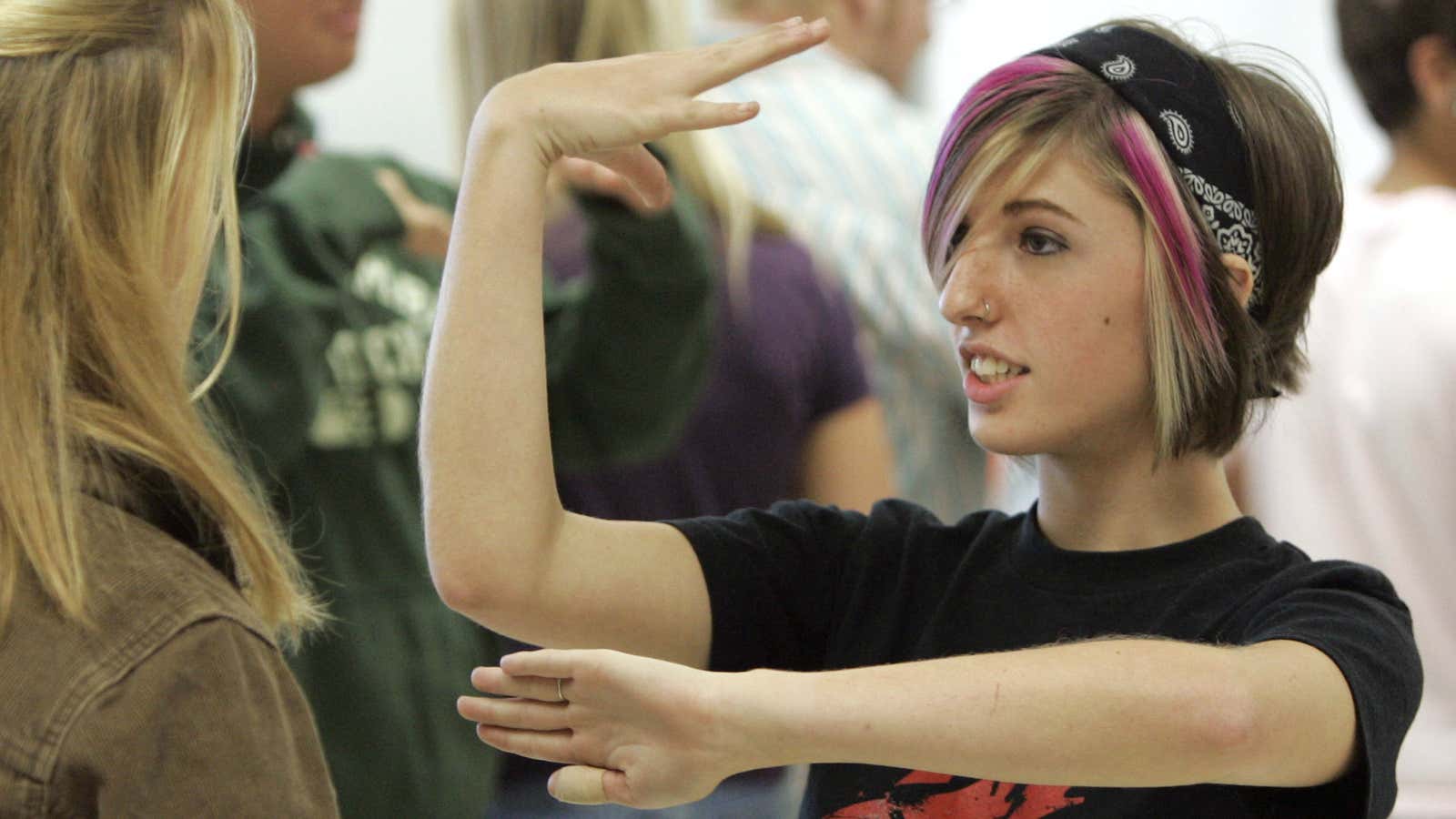When Jonathan Caras and his co-founders created Glide in 2013, he expected it would appeal to families and friends that wanted to communicate via video, but didn’t want to bother with syncing schedules for Skype calls.
“I wanted to create a way to quickly send a short video,” Caras tells Quartz. “It seemed like me and the rest of the world were just not interested in getting on a call.”
Caras and his co-founders envisioned Glide to be like WhatsApp but for video messages, where users send short clips of themselves. But once Glide hit the app stores, and accumulated 10 million users worldwide, the team realized they had accidentally created something quite different—a hit among America’s hearing impaired.
The Jerusalem-based team first realized their app was popular among the deaf in August 2014, when it was about a year old. Their most-requested new feature was unusually mundane—subtitles for their marketing materials. After probing further, they realized that their deaf users wanted to promote the app to other deaf people, but many of their promo videos relied on spoken narration to explain the concept. Without their knowledge, the marginally-popular startup had become a hot topic in the deaf community.
Many deaf people can read and write. But Caras says that that many deaf people feel they can express themselves more naturally through sign language. This makes a video app like Glide preferable to a text-messaging app like WhatsApp or Facebook Messenger.
More than 4 million people in the United States are deaf or hard of hearing, according to the US census bureau. “For some of our deaf users, English is not their first language, full stop.” Caras says. “When I [as a hearing English speaker] look at a word, I experience it through the phonetics of that word. But for deaf people there’s no concept of phonetics. It’s a foreign language that is not natural for a deaf person.”
Glide currently has 20 million registered users, of which Caras estimates about 250,000 of are deaf. Numbers like those might make it difficult for Glide to focus its efforts entirely on serving the deaf. While it has raised more than $25 million in venture capital to date and built proprietary technology to compress videos and store them in the cloud instead of the phone, the app has not yet begun making money, and the world’s most popular mobile messaging firms have made hundreds of millions of dollars by going big, rather than going niche.
But Caras says that the deaf community continues to provide input that often gets included in app updates. He also says the Glide is looking at ways to create instant subtitles for sign language, or converting text into visual graphics.
“We’ve had people write to us saying we’ve allowed them to talk in their child’s first language while she’s away at college,” says Caras, “whereas before, it would have been like being forced to talk to your mother in Spanish.”
